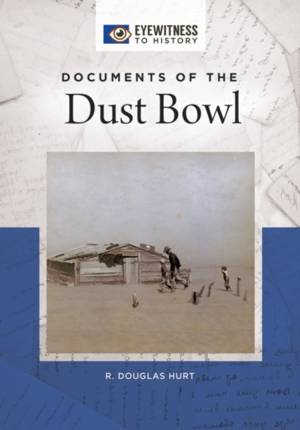
En raison d'une grêve chez bpost, votre commande pourrait être retardée. Vous avez besoin d’un livre rapidement ? Nos magasins vous accueillent à bras ouverts !
- Retrait gratuit dans votre magasin Club
- 7.000.000 titres dans notre catalogue
- Payer en toute sécurité
- Toujours un magasin près de chez vous
En raison de la grêve chez bpost, votre commande pourrait être retardée. Vous avez besoin d’un livre rapidement ? Nos magasins vous accueillent à bras ouverts !
- Retrait gratuit dans votre magasin Club
- 7.000.0000 titres dans notre catalogue
- Payer en toute sécurité
- Toujours un magasin près de chez vous
122,45 €
+ 244 points
Description
This book provides a unique, thorough, and indispensable resource for anyone investigating the causes and consequences of the Dust Bowl.
During the 1930s, drought and the cultivation of submarginal lands created a severe wind-erosion problem in the southern Great Plains, a region that became known as the Dust Bowl. During the worst dust storms, the blowing soil often turned day into night. Some people died when caught outside during a black blizzard, others developed "dust pneumonia," and some residents moved to California. Most people, however, remained. Those who stayed and endured the storms had an abiding faith that federal resources and the return of normal rainfall would end the dust storms and return life to normal, free from the desperation and fear caused by the blowing soil. Documents of the Dust Bowl offers a fascinating documentary history of one of the worst ecological disasters in American history. It will enable high school students and academics alike to study the manner in which Dust Bowl residents confronted and endured the dust storms in the southern Great Plains during the 1930s.Spécifications
Parties prenantes
- Auteur(s) :
- Editeur:
Contenu
- Nombre de pages :
- 280
- Langue:
- Anglais
- Collection :
Caractéristiques
- EAN:
- 9781440854972
- Date de parution :
- 01-04-19
- Format:
- Livre relié
- Format numérique:
- Genaaid
- Dimensions :
- 183 mm x 257 mm
- Poids :
- 793 g

Les avis
Nous publions uniquement les avis qui respectent les conditions requises. Consultez nos conditions pour les avis.






